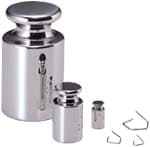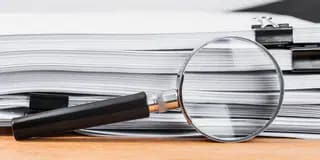Precautions When Using and Storing Weights

Weights are very delicate. If they are used or stored in the wrong way, they can become scratched or damaged, or rust, which causes their mass to change. The following describes precautions for when weights are used and stored so that you can use your weights for a longer time.
Using Weights
- Do not touch weights with your bare hands. If you do, oil or salt from sweat will stick to the weights, and resulting rust etc. will cause a change in their mass. To prevent the weights from becoming scratched, use wooden tweezers or tweezers with resin or rubber covers on their tips. When handling heavy weights, use gloves.
- Do not allow weights to slip on the balance pans or to bump against hard objects. If they are allowed to slip on the pans, their base might rub and wear down, causing their mass to decrease. Or, if they bump against hard objects, the weight might become partially chipped.
- When using weights for high-resolution balance calibration, attention must be paid to the temperature of the balance installation room and weight storage room. If their temperatures are different, convection will occur during measurement, and this might cause values to change. Leave weights for a sufficient time (2 to 8 hours) in the balance installation room (weighing room for high-resolution balances) so that the temperature of the weights becomes the same as that of the installation room (weighing room for high-resolution balances).
Storing Weights
Store weights in a room free of moisture, dust and corrosive gases. Rusting or dust sticking to weights might increase their mass. It is recommended to put weights inside a desiccator containing desiccant and place the desiccator in a metal locker.






